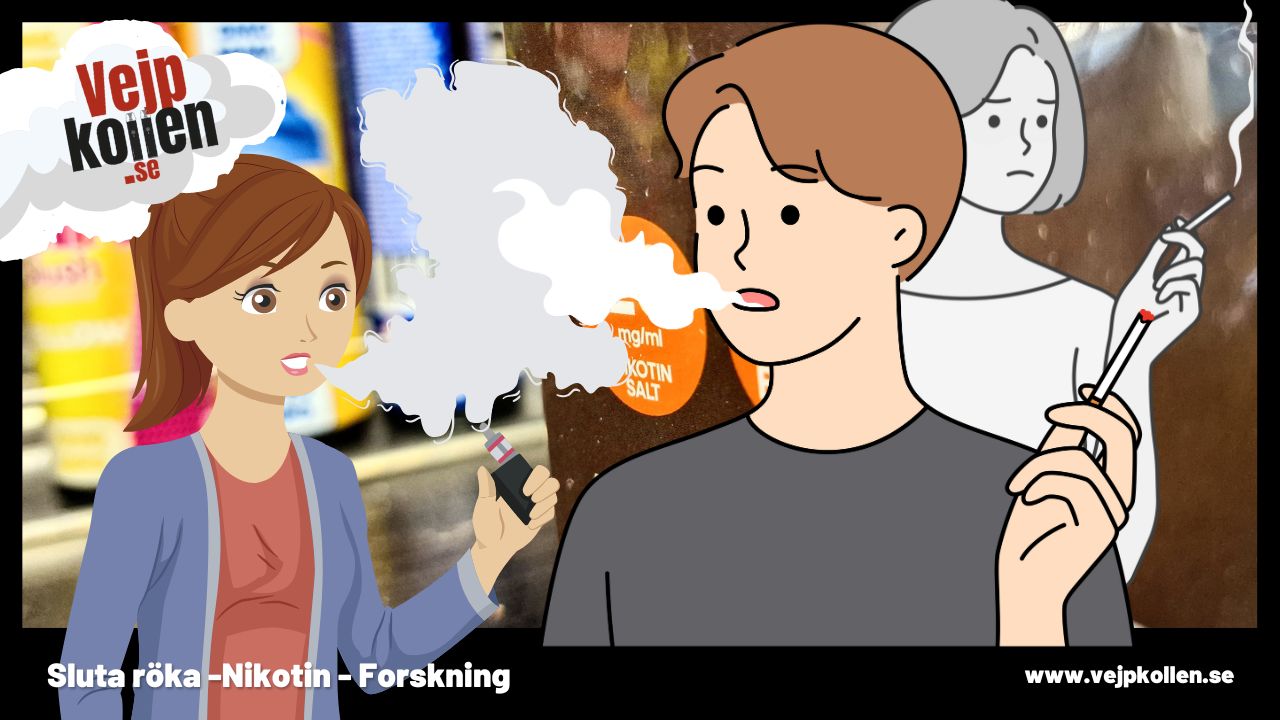Snus may be the most widely used nicotine product in Norway, accounting for 50 per cent of all use. But among those who still smoke, e-cigarettes probably have the greatest potential to reduce smoking. Traditional nicotine medicines, on the other hand, are not very popular. This is according to a new study by the Norwegian Institute of Public Health.
Almost a third of smokers in Norway say that e-cigarettes would be their first choice to help them quit smoking. The popular snus, which has been shown to be the most effective tool to quit smoking in Norway was second on the list, with 22% of the votes. Only one in five would choose nicotine medicines such as chewing gum and patches.
Smokers who do not like snus
The researchers behind the The Norwegian Institute of Public Health The study wanted to find out how smokers in a country where the use of snus is very widespread view e-cigarettes, snus and nicotine medicines as alternatives to cigarettes. The questions focused on smoking cessation and the extent to which smokers, currently around 15 per cent of the adult population, would consider using the different products to quit smoking.
"We suspect that snus attracts the remaining smokers less than before. Mostly because a large proportion of those who currently use snus have already given up cigarettes. Those who still smoke are those who are not hooked on snus and they are often heavy smokers." Karl-Erik Lund, who led the study together with his colleague Tord Finne Vedøj, said. the magazine Forskning.no.
Smokers worry about the risks
The use of e-cigarettes has long been relatively low in Norway. This is probably due to the current ban on the sale of nicotine-containing e-liquid in Norway, say the researchers. At the same time, the study shows that many smokers believe that harm-reducing nicotine products are more harmful than they probably are.
"Smokers perceive the risks of e-cigarettes as almost 60% of the risks of smoking. The same applies to snus, even though we know that the risks are significantly lower in comparison. This is probably due to unclear information from authorities and media reporting that focuses on suspected, but not confirmed, risks." the researchers write in their analysis.
Nicotine medicines do not attract
The same applies to various nicotine medicines, even though they are actively marketed and recommended by authorities for smoking cessation.
"The difference between NRT and e-cigarettes is that they do not fulfil a recreational purpose. They are considered a therapeutic product that is not intended for enjoyment. Unlike e-cigarettes and snus, they do not fulfil any function in social settings, either to build identity or to create a sense of belonging. This has led to their lack of popularity," the researchers write.
Flavour bans worry scientists
At present, the Norwegian government is leaning towards pushing through an extensive prohibition of flavourings in e-liquid, as nicotine-containing e-juices will be authorised for sale in Norway. Only so-called tobacco flavours will be available for sale, while all online sales will be banned. This concerns the researchers behind the study.
"A majority of smokers who have switched to e-cigarettes in Norway use fruit and berry flavours. Banning them risks greatly reducing the chances of more smokers quitting smoking", says Karl-Erik Lund to the newspaper Forskning.no.




